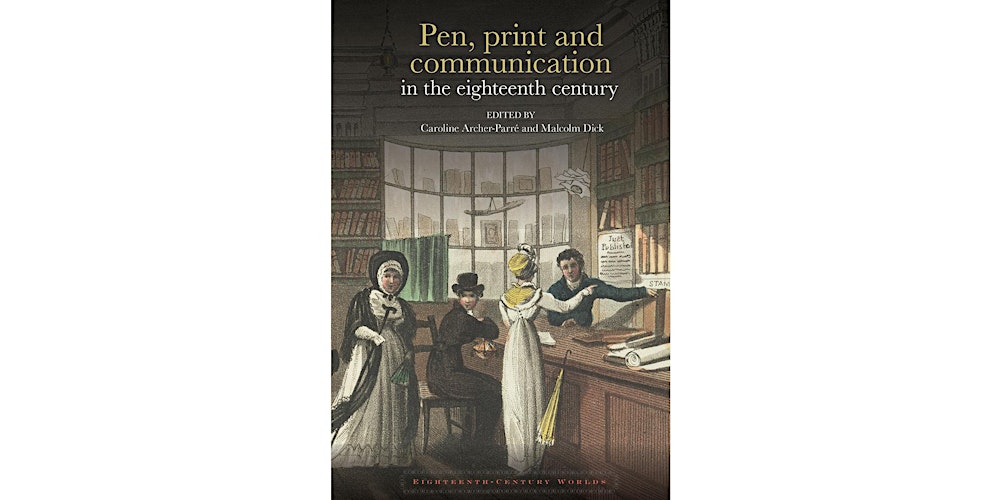A new book concerning the history of printing is to occur online on 19th November.

 www.eventbrite.co.uk
The event is free, but it is necessary to book
www.eventbrite.co.uk
The event is free, but it is necessary to book
Authors of chapters will give a brief talk . This will include two which concern Birmingham:
Elaine Mitchell: Marigolds not manufacturing: plants, print and commerce in eighteenth-century Birmingham.
The nursery catalogue of John Brunton & Co. illustrates the fruitful connections to be made between garden history and printing history and culture. This exploration moves the catalog beyond its site of production in the English Midlands to situate it as a product of the global transmission of cultural influences, as well as the global movement of plants. In so doing, it illuminates new aspects of the history of Birmingham, a town more widely celebrated for its manufacturing than its marigolds.
Elaine Mitchell is a doctoral researcher at the University of Birmingham.
Jenni Dixon: Tourist experience and the manufacturing town: James Bisset’s Magnificent Directory of Birmingham.
This talk looks at Bisset’s Magnificent Directory (1800) of Birmingham and how it was an attempt to engineer the ways in which Birmingham tourists might not just see, but also imaginatively visualise the town. Bisset’s directories are a pertinent example of how printed imagery were utilised not simply as a tool for understanding what past landscapes looked like, but why they were looked at, and how that looking was experienced.
Jenni Dixon is a doctoral researcher at the University of Birmingham.

Pen, Print and Communication in the Eighteenth Century: Webinar Book Launch
Pen, Print and Communication in the Eighteenth Century, webinar book launch.
Authors of chapters will give a brief talk . This will include two which concern Birmingham:
Elaine Mitchell: Marigolds not manufacturing: plants, print and commerce in eighteenth-century Birmingham.
The nursery catalogue of John Brunton & Co. illustrates the fruitful connections to be made between garden history and printing history and culture. This exploration moves the catalog beyond its site of production in the English Midlands to situate it as a product of the global transmission of cultural influences, as well as the global movement of plants. In so doing, it illuminates new aspects of the history of Birmingham, a town more widely celebrated for its manufacturing than its marigolds.
Elaine Mitchell is a doctoral researcher at the University of Birmingham.
Jenni Dixon: Tourist experience and the manufacturing town: James Bisset’s Magnificent Directory of Birmingham.
This talk looks at Bisset’s Magnificent Directory (1800) of Birmingham and how it was an attempt to engineer the ways in which Birmingham tourists might not just see, but also imaginatively visualise the town. Bisset’s directories are a pertinent example of how printed imagery were utilised not simply as a tool for understanding what past landscapes looked like, but why they were looked at, and how that looking was experienced.
Jenni Dixon is a doctoral researcher at the University of Birmingham.
